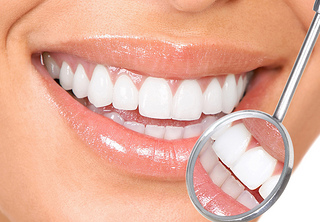The History of Dental Implants
September 27th, 2016

The earliest endeavors for dental implant tooth substitutes on record dates back to the Mayan civilization, to 600 AD. Archeologists recovered primeval skulls in which the teeth had been replaced with materials the ranged from wood, stones, and jewels to small pieces of seashells.
Like most scientific progresses, the finding of what makes todays dental implants so successful was unexpected. In 1952, a Swedish orthopedic surgeon, named Dr. Branemark, placed a very small titanium cylinder into a bone to learn how the bone would heal. What he discovered was that the titanium cylinder had fused (melded to the bone.) Out of this experiment dental implants would be born within two decades.
In 1970s, modern dental implants made their first appearance. Of course, over the past four decades, the original dental implant has undergone several improvements in both structure and design, but has always been based on the original theme.
Dental implants were first made available to individuals who had lost all of their teeth and had difficulty wearing dentures, mainly because they had lost of much of their jawbone were dentures set. Today, most dental implants are used in place of dentures, for multiple teeth that are missing, or to replace a single tooth.
When dental implants were first designed, they were a one size fits all. The original dental implants were all the same circumference, while the length of each tooth varied depending on the type of tooth it was replacing. The dental implants were smoothed out and polished by a machine, but still did not produce the natural looking dental implants we have today.
Now, with the help of state-of-the-art equipment and advanced technology, implants come in a wide variety of sizes and shape to match the teeth that are missing. The surfaces of today’s dental implants give them a more natural look and feel. In addition, the surface of the dental implant also attaches to the bone much easier and for a longer period of time.
Dr. Branemark's discovery has left an impression on dental professionals, all over the world, including Dr. Carl Meyers. If you are considering dental implants to improve your smile’s health, beauty, and function, be sure to contact our West Bend, WI office to schedule an appointment.






